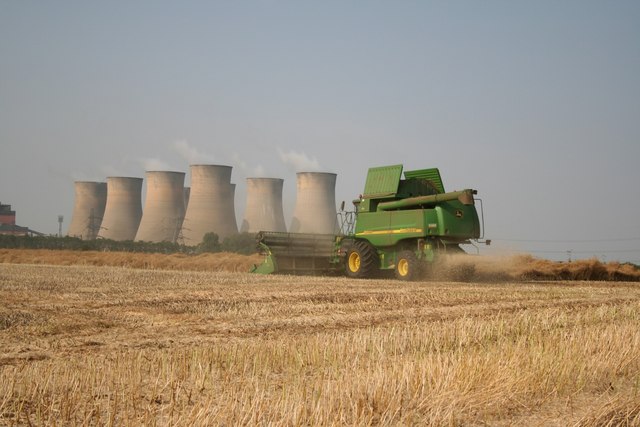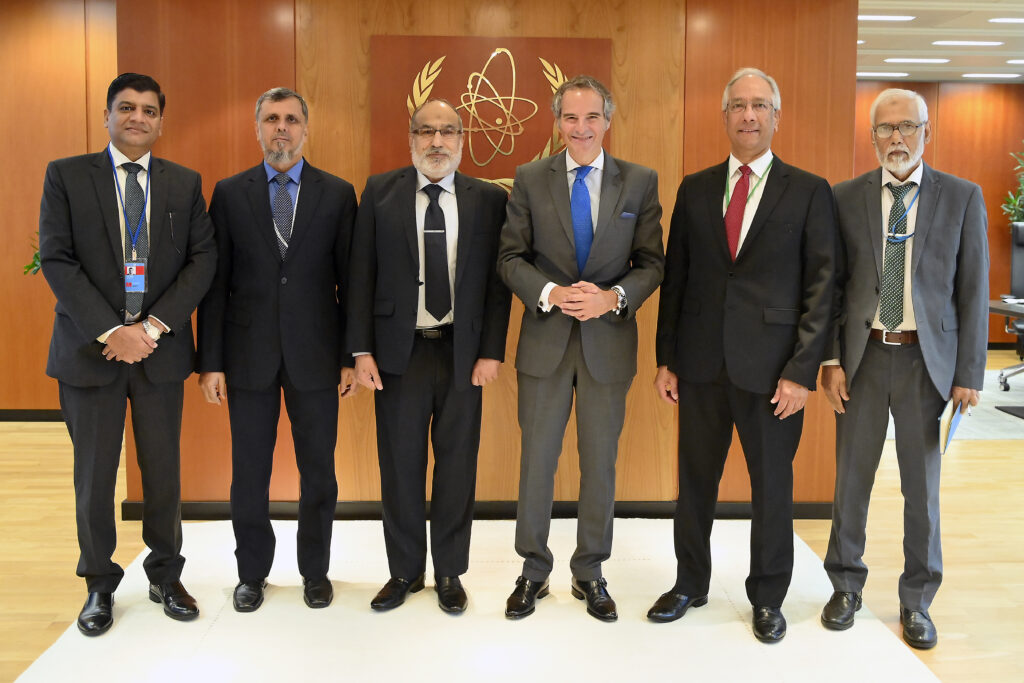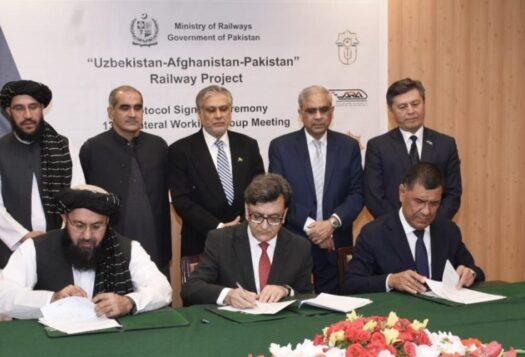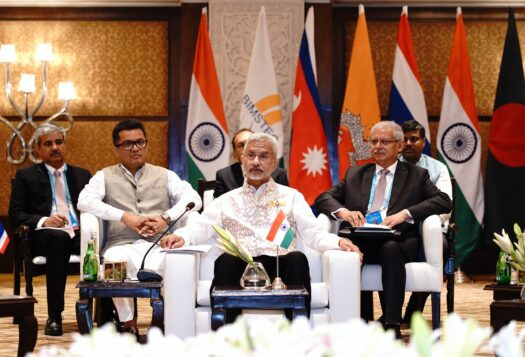
Pakistan is struggling to redevelop its agriculture sector after the 2022 floods. In the past, Pakistan’s cooperation with the International Atomic Energy Agency (IAEA) on nuclear energy created affordable and sustainable growth within the sector, as nuclear energy is a clean and affordable energy resource in comparison to fossil fuels. To further strengthen Pakistan’s agriculture, the partnership requires more funding from Pakistan, better access to nuclear technology through the Nuclear Suppliers Group (NSG) membership, and support for local Pakistani participation. As climate change and food security issues worsen, nuclear technology use under IAEA safeguards is important for agriculture development and to bolster confidence in Pakistan’s responsible use of nuclear technology.
Food Insecurity in Pakistan
Climate change has exacerbated the vulnerabilities in Pakistan’s agriculture sector, resulting in unpredictable weather patterns, protracted droughts, and increased pest infestations, all of which endanger food security and economic stability. These changes underscore the importance of transformative solutions for mitigating the effects of climate change. Agriculture is also the backbone of the Pakistani economy, employing more than 68 percent of the population and accounting for 21 percent of the Gross Domestic Product (GDP). Pakistan’s dependency on agriculture is under threat as the country has been identified as one of the most vulnerable to climate change. Recent events, such as the devastating floods in 2022, have highlighted that climate change poses an existential threat to agriculture and livelihood. These floods have claimed over 1739 lives, led to widespread displacement, and resulted in USD $40 billion worth of economic damages.
Since the floods of 2022, Pakistan has also been suffering from severe food insecurity. The floods have exacerbated the pre-existing problems of low agricultural output, political and economic instability, and corruption. According to the 2018 National Nutrition Survey, 36.9 percent of the population was food insecure in 2018. In the 2023 Global Hunger Index, Pakistan ranked 102 out of 125 countries, presenting a dangerous level of hunger. The rest of the region also faces food security concerns, with Bangladesh ranking 81 and Afghanistan ranking 114.
Addressing Non-Traditional Security Challenges with Nuclear Energy
Nuclear energy is a clean and affordable energy resource which does not emit greenhouse gases. By extension, nuclear technology is a resilient means to address climate-induced agricultural challenges. Pakistan has previously relied on nuclear technology for its agricultural sector with the support of the IAEA.
Pakistan’s dependency on agriculture is under threat as the country has been identified as one of the most vulnerable to climate change.
The IAEA has monitored Pakistan’s nuclear program to ensure the safe and legal use of its nuclear energy program. The IAEA works with 164 member states and international partners to confirm nuclear powers’ adherence to legal obligations for peaceful nuclear use by facilitating information exchange and putting safeguards in place to detect and prevent misuse. By collaborating with the IAEA, Pakistan has increased the credibility of its use of nuclear technology in the eyes of other states and international organizations.
The Pakistan Atomic Energy Commission, in collaboration with the IAEA, has established two agriculture research centers at Tandojam and Lyallpur, where scientists are using radiation and radioisotope techniques to conduct cutting-edge research. For example, these facilities produced a wheat mutant that had 19 percent more protein than regular wheat. With the help of nuclear technology, these research centers produced over 125 high-yield crop varieties that grew with higher quality and stress tolerance.
Nuclear technology has also driven the transformation of cotton production, a crucial cash crop within Pakistan’s agriculture sector. Nuclear Institute for Agriculture and Biology (NIAB) in Faisalabad, in collaboration with the IAEA, has developed climate change-resilient cotton varieties. This nuclear innovation in cotton production has also led to the development of climate change-resistant cotton types, which has increased cotton production by 30 percent since 2016 and strengthened food security and economic stability in Pakistan.
Resilient Production: Combating Pests and Salinity
In addition to making staple crop growth more efficient, there are numerous uses of nuclear energy in the agriculture industry. Nuclear technologies have the potential to significantly increase agricultural output, lower crop losses, and change the lives of farmers across the country. According to research conducted at Tandojam and Lyallpur centers, gamma irradiation is effective at disinfecting wheat and rice, as well as extending the shelf life of fruits. These innovations have decreased food loss, enhanced self-sufficiency, and increased Pakistan’s food exports by more than 18 percent to USD $1.28 billion in the 2023 fiscal year.

Examples of the other innovations that nuclear energy have inspired include the Sterile Insect Technique for pest management and a biological approach to tackle salinity. In Pakistan, nuclear-based insect sterilization with gamma or x-rays effectively lowers pest populations without the use of chemical pesticides, guaranteeing lower crop losses, higher agricultural yields, and a healthier environment.
Pakistan’s Peaceful Nuclear Program Must Receive Support to Address Environmental Challenges
Pakistan’s experience highlights the importance of fostering an environment where scientific research, innovation, and global collaboration can combine to overcome non-traditional security challenges. Expanding and fortifying the partnership with more funds and resources is an essential step to advancing this achievement. The transformative power of these nuclear technologies extends far beyond the borders of Pakistan, offering a beacon of hope for developing countries grappling with similar agriculture challenges.
Pakistan still has limited access to nuclear energy markets because of the restrictions placed by the non-proliferation regime, a broad international framework of agreements and organizations aimed at preventing the spread of nuclear weapons. Pakistan struggles to gain membership to the Nuclear Suppliers Group (NSG), which sets guidelines for nuclear trade so that exports do not contribute to proliferation. Pakistan faces these restrictions because of nuclear proliferation concerns in the region; Pakistan’s role in the AQ Khan network, plus China’s proposition for its membership, means that Pakistan faces strong geopolitical resistance to its membership. Membership in the NSG would help Pakistan to increase confidence in the country’s peaceful nuclear program, as well as provide safe and better access to the nuclear technology market under the NSG regulations. This will enable Pakistan to better share nuclear technology advancements that contribute to agricultural efficiency with other countries struggling with the same issues. Thus, NPT member states need to decide on criteria that helps non-NPT states to join the group and bring their nuclear programs under the NSG regulations.
The IAEA should consider broadening its partnership with Pakistan as a confidence-building measure for Pakistan to soften the image of its nuclear program in the world’s perspective.
Another challenge to Pakistan’s peaceful nuclear program is a lack of funding for the training and education of Pakistanis who could advance the country’s application of nuclear technology to agricultural challenges. The local community in Pakistan is more familiar with the problems in the agriculture sector but does not have sufficient support to contribute to projects that address these issues. The IAEA has the means to provide this support and increase collaboration across Asian member states through the Regional Cooperative Agreement for Research, Development and Training Related to Nuclear Science and Technology, of which Pakistan is a member. Exchange programs for local scientists, pharmacists, and researchers working on agricultural technology could provide them with the skills and opportunity to become experts who can lead projects and effectively utilize funding.
Members of the non-proliferation regime are wary of Pakistan’s nuclear program, even though the IAEA has commended Pakistan for the safety and security record of its nuclear energy and technology. The IAEA should consider broadening its partnership with Pakistan as a confidence-building measure for Pakistan to soften the image of its nuclear program in the world’s perspective. Widening this partnership also supports the international nuclear nonproliferation regime, as peaceful use of nuclear energy is one of its three components. The IAEA safeguards incentivize Pakistan to use its nuclear materials responsibly, making it less likely that its nuclear technology deviates from civilian to strategic purposes.
To strengthen the partnership, Pakistan can collaborate with the IAEA on its Small Modular Reactors (SMRs) program. A partnership with IAEA on SMRs would support Pakistan’s peaceful nuclear program by ensuring that the nuclear material that Pakistan gets access to is used for peaceful purposes. The success of such projects under this partnership would pave the way for Pakistan to advance its cooperation with the IAEA, potentially gain better access to nuclear energy markets, and build its nuclear technology programs that address food insecurity. It is imperative that the world works together to overcome opposition to the use of nuclear energy and advance the use of nuclear technology in agriculture given its productive potential.
Also Read: Small Modular Reactors: India’s Quandary to Liberalize the Nuclear Energy Arena.
***
Image 1: Nuclear Power Plants and Agriculture via Wikimedia Commons.
Image 2: Bilateral Meeting between Pakistan and IAEA via Flickr.


